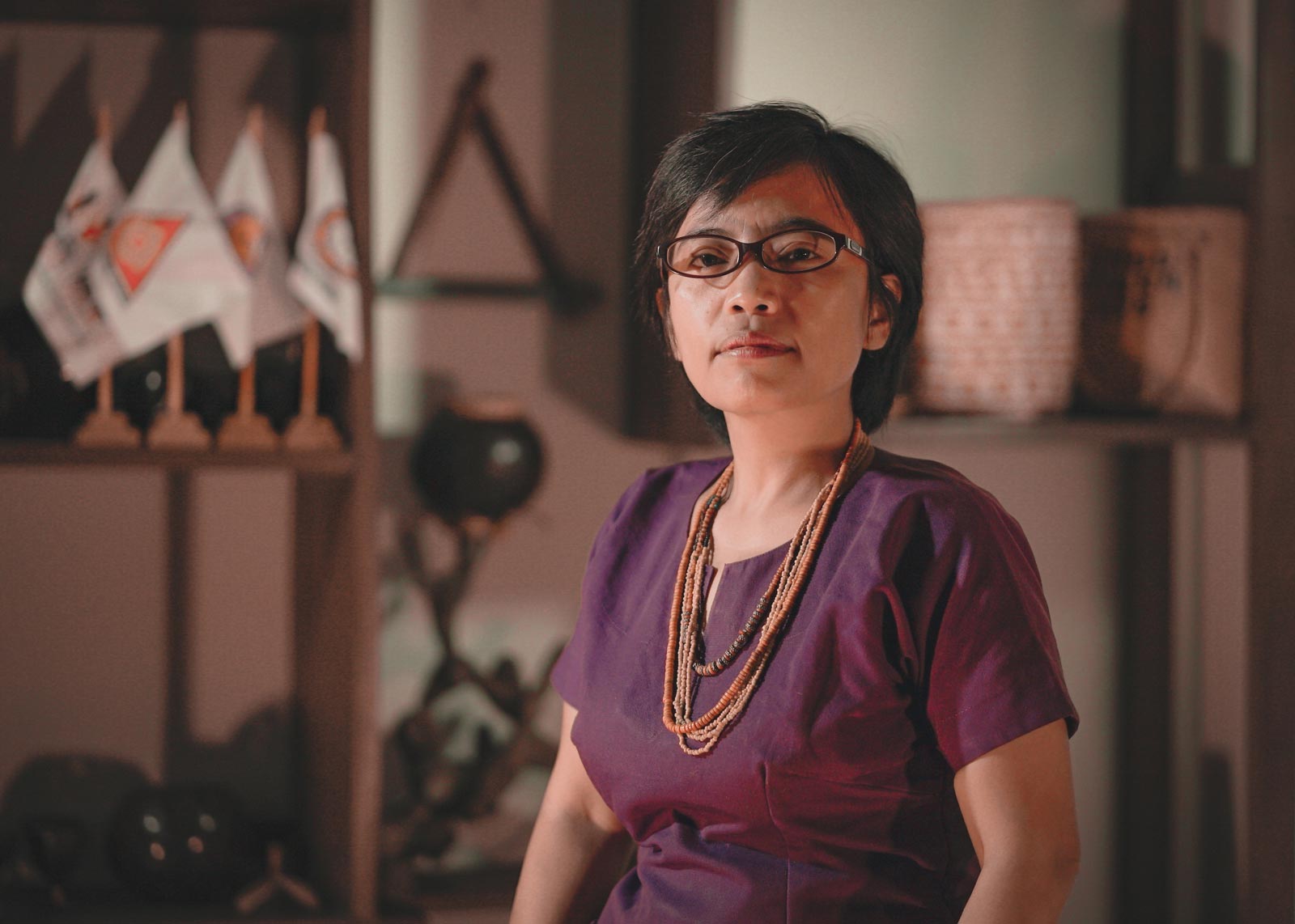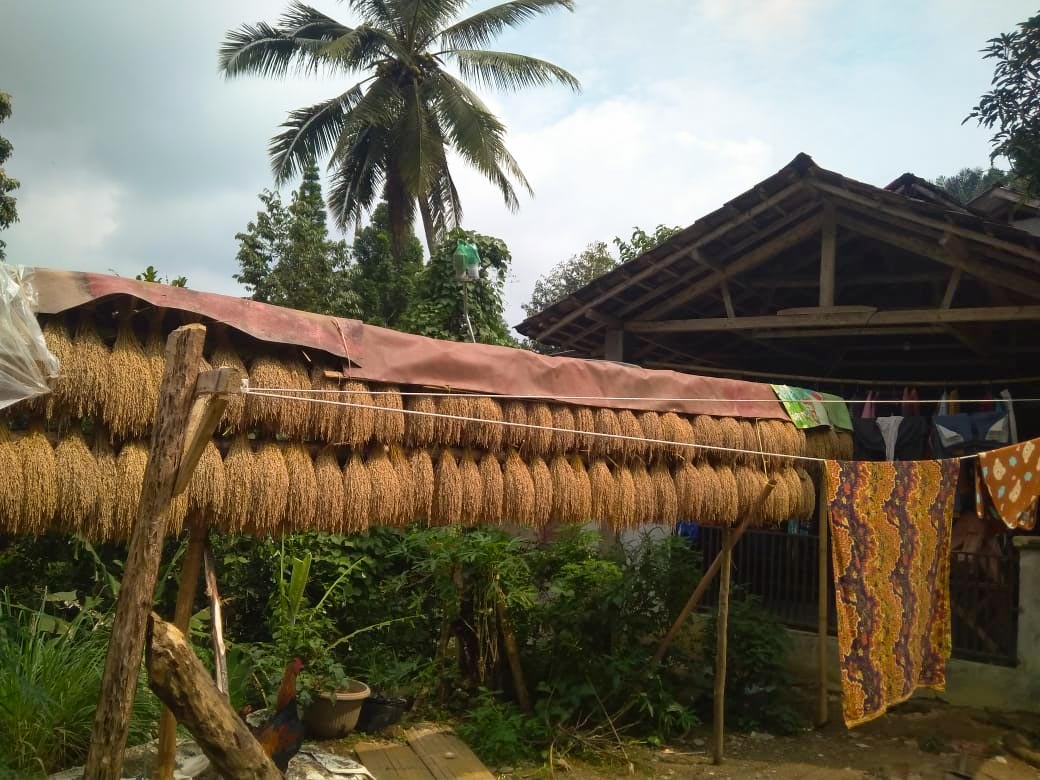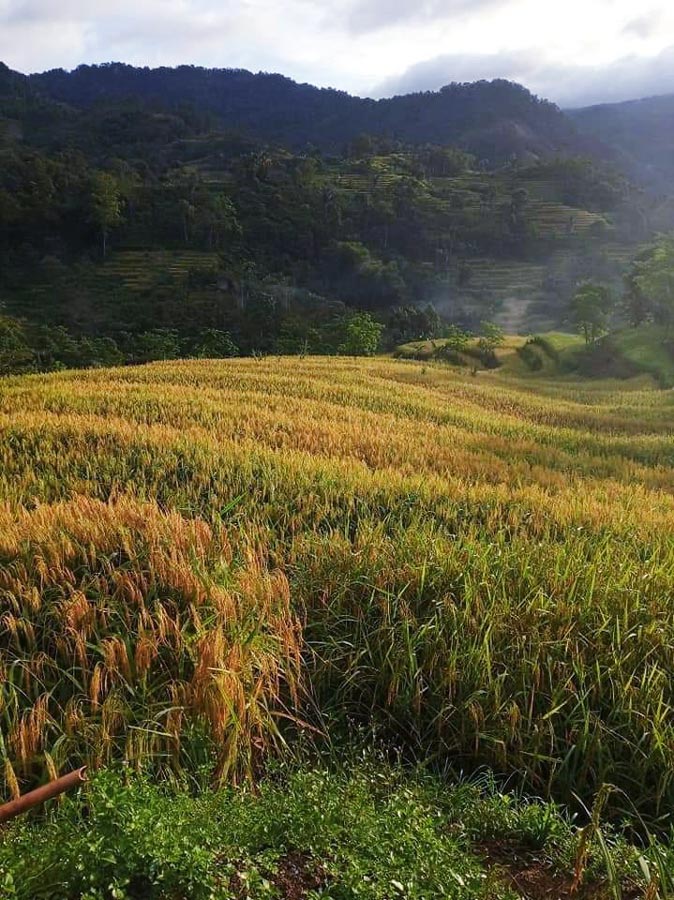Rukka Sombolinggi was in a tough position.
The secretary general of the world’s biggest organisation for indigneous peoples, Aliansi Masyarakat Adat Nusantara (AMAN) (the Indigenous Peoples Alliance of the Archipelago) had been watching the escalation of the Covid-19 pandemic while putting together the Indonesian group’s annual meeting.
The mass gathering of some 700 representatives from across the sprawling island nation was scheduled to begin on March 17, a significant date for Indonesia’s indigenous people marking the start of their movement in 1999.
But while the five-day meeting is usually a working celebration of indigenous heritage, this year it seemed like an unacceptable public health hazard. Rukka, a woman from the Torajan ethnicity indigenous to the mountains of Sulawesi island, was forced to make a decision just a day before the event kickoff in the town of Ende, on the island of Flores.
“AMAN is locked down,” she said in a message to staff. “I am ordering all the AMAN headquarters at the national, regional and local levels should be closed down. All the organisers should be working from home and all the community should start the emergency response.”
The announcement was a bitter pill to swallow, especially as AMAN representatives believe the virus itself has highlighted many of the inequities of life for the archipelago’s indigenous peoples.
“Everyone who is still in Ende, needs to fly back to Jakarta,” Rukka added. “All the organisers should be working from home and all the community should start the emergency response. No mass gathering nor meetings. All the villages should lock itself, and each community should immediately hold the rituals for combating the coronavirus outbreak.”
Still today, as the future of the virus remains uncertain in Indonesia as Covid-19 cases continue to rise by approximately 1,000 per day as of mid-June, indigenous groups across the country continue to seize this opportunity to exert control over their communities, who in the absence of government support and protection have had to take safety measures into their own hands in recent months.

For 15 years now, AMAN has fought to advance Indonesia’s Indigenous Rights Bill, a legal code written not only to enhance and legalise indigenous claims over ancestral lands, but also to guarantee freedom of religion and traditional lifestyles.
According to 2018 Indonesian Bureau of Statistics figures, there are about 70 million indigenous people all over the country, mostly living in remote and isolated areas. Fighting for their rights since the foundation of modern-day Indonesia in 1945, indigenous groups still struggle for recognition over their ancestral claims and remain among the country’s most marginalised groups.
The long road of seeking recognition has seen land grabbing over their ancestral domains by both mining and plantations companies, as well as the Indonesian state. Indigenous activists who have stepped up to defend their customary land have been met with criminalisation and deaths. Practicing traditional religions is still against the law and labeled as anti-development, uncivilised and backward.
During the Covid-19 pandemic, this inequality has also been exacerbated.
Indigenous groups without secure land tenure, particularly those people whose lands have been seized and are forced to live as palm oil farmers, are among the most threatened because of their simultaneous reliance on a faltering global supply chain and their poor access to state healthcare and services.
This is may be a perfect time for the indigenous peoples to show what we have. We are showing how all disadvantages due to the absence of the State are not limiting us to protect our communities and ancestral domains
Members of Indigenous movement believe the state will not come to save them and have been countering a lack of health infrastructure and facilities with local wisdom and practice. From Papua in the east to Toba in North Sumatra in the west, indigenous communities are taking their own measures to fight the spread of the virus, enacting measures like self-quarantine initiatives, village lock-downs from outsiders and even various rituals asking for the blessings and protection of ancestors and Gods.
Rukka herself believes that the Covid-19 outbreak is an opportunity to show how the absence of state services can be overcome by indigenous peoples exercising their autonomy and sovereignty.
“This is may be the most perfect time for the indigenous peoples in the [Indonesian] archipelago to show what we have. We are showing how all disadvantages due to the absence of the State are not limiting us to do our best to protect our communities and our ancestral domains,” she explained.
Apart from the rituals and lockdowns, Indonesia’s indigenous groups have also undertaken other strategic initiatives in response to Covid-19. These have included quarantines, bolstered food reserves including short-term food crops, and preparation of local medicine. Village chiefs in indigenous communities, along with women and young school leaders, are using such traditional methods to fight Covid-19.

Baso’ Gandasura is a village chief in Bonelemo, Banua Lemo, West Bajo, South Sulawesi. He said betel leaf has become a staple ingredient in the indigenous peoples’ apothecary of natural disinfectants.
“We produced our own disinfectant by using citrus and betel leaf, those that can be easily found within our ancestral domain,” he said. “The most important thing is we shared it for free.”
Long cut off from each other, the affordability and ubiquity of modern communication tools also means many of these communities are now sharing their status and strategies with each other via messaging apps.
Herkulanos Sutomo is a member of the Ibanese Dayak people, an ethno-religious group from West Kalimantan province on the island of Borneo. He’s the head of the AMAN chapter in his home regency and, from his community of Sui Utik, provides regular social media updates on how his neighbours are faring through the Covid-19 pandemic.
Sui Utik is a well-known cultural centre for the Ibanese Dayak people. Last year, community members there won the Equator Prize, an award from the UN Development Programme honouring efforts to reduce poverty through the conservation and sustainable use of biodiversity.
Now, he’s using WhatsApp to let others know what’s happening in the area – most notably, the temporary closure of Sui Utik to visitors.
“We are no longer welcoming outsiders as our way to protect the community,” he wrote in a message. “By this, we are announcing the temporary lockdown of Sui Utik.”
Other villages have followed suit. A representative of the Toro people from the Poso regency of Central Sulawesi island confirmed her own village had been locked down as well to prevent the spread of the viral disease.
We are teaching this young generation how they can contribute to current ongoing lock-down by helping to produce disinfectant using natural plants from our own indigenous territory
In Ujang, Sekatak, North Kalimantan province on Borneo island, indigenous school Punan Semeriot, founded in 2015, is taking full responsibility for educating the children while the state school is temporarily closed.
“We are not only teaching them common knowledge, but also how this young generation can contribute to current ongoing lock-down by helping to produce disinfectant using natural plants from our own indigenous territory,” Sri Tiawati, the Punan Semeriot Indigenous School leader said.
Imposing self-quarantine over a territory is not an easy mission, especially in areas already susceptible to food insecurity. According to the Indonesian Food Sustainability and Vulnerability Atlas (2018), there are 12 provinces with vulnerability below the national index, which means these places do not have enough food reserved in the times of disease outbreak.
However, that was not the case among Indonesia’s indigenous groups who still control and manage their own customary territories. That includes the Meratus, who are known for having more than a dozen different kinds of local organic paddy.
“We have plenty of foods provided by our forest. We can survive until next year,” Rubi said. He is a Meratusian Dayak from South Kalimantan and the Head of AMAN Local Chapter in Hulu Sungai Tengah. “Our recent rice harvest is enough to survive for at least one and half year.”
Ruhandi, the chief of Warungbanten village in Kaolotan Cibadak of Banten province, said his community is food secure for the foreseeable future.
“We just finished our harvest on rice fields and now will continue to harvest our other short-term crops,” he said. “For the next two years, we will have sufficient food reserves.”
Kasepuhan people, too, are known for their food granary storage which can last to ten years. Their rice harvest will be hung dry for several weeks before being tied and put inside the community granaries.
The Pululera community in Walanggitang, East Flores of East Nusa Tenggara holds their harvest festival in mid-April.
“However, we are not going to sell our rice this year. We are going to use it to ensure our community will have enough food for at least one year,” said Lorensius Nadus, the Head of AMAN local chapter in East Flores.
While these are examples of indigenous groups who still operate a traditional food supply system, where harvests are used first to ensure the food security of community members and not prioritised for sale, “not all still have that luxury” Rukka said.
“Most of them unilaterally had their ancestral domains converted into oil palm plantation and mining,” she said.
Rukka said this is an ugly truth of a country where 15 million hectares – and another 15 million on its way – of rainforest has been transformed through different government permits into oil palm plantations, while more than 93 million hectares is now mining concession, disproportionately impacting upon indigenous territories.
Rukka said that Indonesian government still approaches the Covid-19 pandemic as an urban-oriented problem, while at the same time ignoring the potential for indigenous groups to provide alternatives where the State is lacking, or worse, absent.

“Covid-19 shows us how urgent it is that the government passes the Indigenous Rights Bill,” Rukka said. “Without official recognition, the indigenous cannot freely help themselves and other neighbouring villages or communities who are in pain due to this global pandemic.”
“The government still lets companies keep their operation going, which not only threatens the indigenous communities nearby but also the workers,” Rukka added.
AMAN, together with Wahana Lingkungan Indonesia, released an official statement on how companies put profit over people during this global pandemic, highlighting how indigenous communities’ self-quarantine initiatives have been threatened by the stubbornness of companies continuing their operations.
“There will be no reasonable arguments to put profit over people. It shows how these companies are not in line with the State’s willingness to save its people,” Rukka said.
The Indonesian Indigenous Rights Bill itself has been in limbo since 2010 and was worsened by the betrayal of President Joko Widodo’s promise to pass the bill when he sought electoral support from AMAN back in 2014. Now, after a decade, the bill remains a dream. There is still no protection nor recognition at the national level for the Indonesia’s indigenous groups, and their customary land is being taken away.
Rukka and most of the Indonesian indigenous who are fighting for their rights are fully aware that the State sides with mining and mono-agriculture companies, and so they need to deal with Covid-19 threats on their own by drawing on their community spirit and wisdom.
Long before the Covid-19 outbreak, Indonesia’s indigenous peoples were forced to fight for their communities, and the recent global pandemic has necessitated that they once again stand on their own feet to ensure their survival.
They know they can’t afford to wait for anyone else to help.


